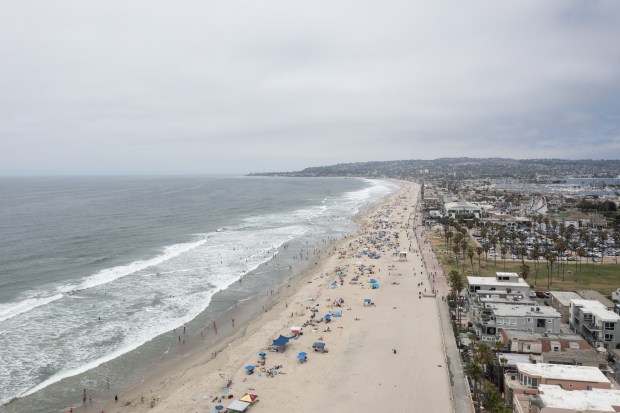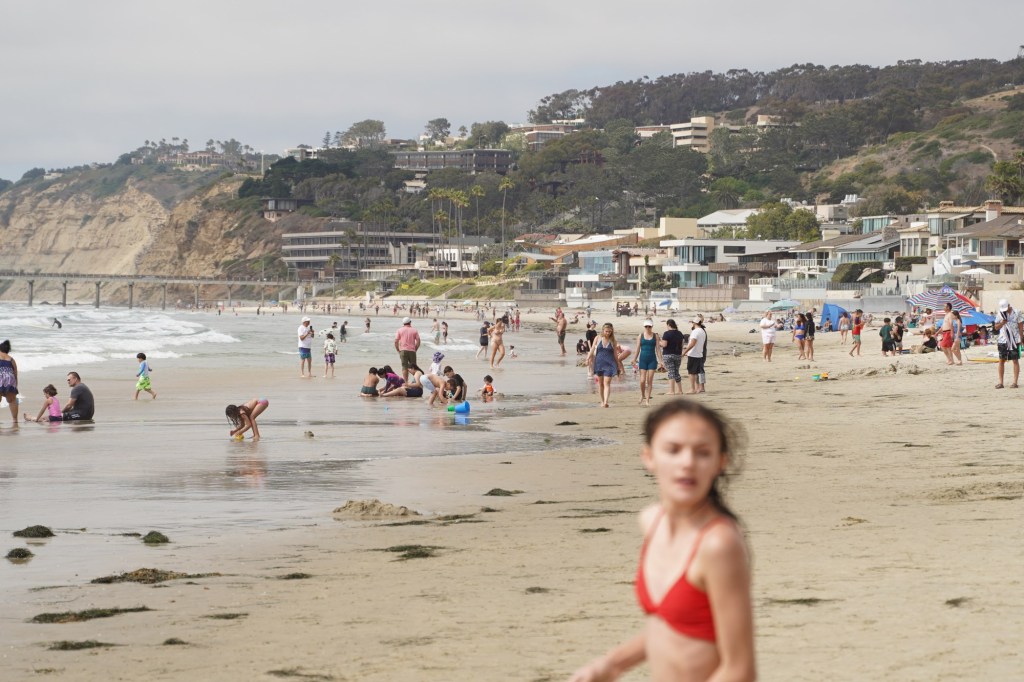San Diego city leaders will consider Wednesday a ballot measure asking voters to levy a hefty new tax on vacation rentals, as well as on second homes that owners aren’t renting out long-term.
Councilmember Sean Elo-Rivera said the new tax would generate about $135 million per year and simultaneously encourage property owners to make homes available to locals as long-term rentals. But his office would not say how he arrived at that figure.
“This tax will ensure that those who are benefiting from ownership of limited housing stock for purposes other than someone’s long-term residence will pay their fair share for keeping these houses off the market and unavailable to San Diegans who need a home,” said Elo-Rivera, who is spearheading the effort.
Critics say the tax, if passed, would damage local tourism and hurt property owners who rely on vacation rental income to help pay their bills. They also say it wouldn’t add any much-needed new housing in the city.
The tax could be presented to voters as soon as the June 2026 ballot. It would require support from only a simple majority of voters because the money would be used for general city purposes.
San Francisco, Berkeley and Vancouver, Canada, have all approved taxes on vacant properties in recent years. But it appears San Diego would be the only city to adopt a single tax applying to both vacant properties and vacation rental properties.
The tax and proposed ballot measure will be discussed by the City Council’s Rules Committee during a meeting scheduled to begin at 9 a.m. Wednesday.
Elo-Rivera and his staff did not provide details or respond to questions about the amount of the proposed tax and whether it would apply on a per-property or a per-room basis.
But the leading opponent of the tax, the San Diego Regional Chamber of Commerce, says emphatically that Elo-Rivera is proposing an annual tax of $5,000 that would be levied per bedroom.
A spokesperson for Elo-Rivera declined Monday to either confirm or refute the chamber’s characterization of the tax, saying that Elo-Rivera hasn’t proposed a specific rate and hopes to get direction on that Wednesday.
But Elo-Rivera has provided an annual revenue estimate of $135 million and has also said the tax would apply to an estimated 10,600 homes: 5,600 short-term vacation rentals and 5,000 second homes.
Simply dividing $135 million by that number of properties yields an average tax of $12,735 per property.
But it’s unclear how many property owners would avoid the tax by either converting their vacation rentals to long-term rental homes or deciding to rent out their second home long term.
 Mission Beach on Wednesday, July 17, 2024, in San Diego. (Ana Ramirez / The San Diego Union-Tribune)
Mission Beach on Wednesday, July 17, 2024, in San Diego. (Ana Ramirez / The San Diego Union-Tribune)
Elo-Rivera stresses that the tax would only apply to roughly 2% of all properties in the city. It wouldn’t apply to the vast majority of homeowners — including those who either rent homes to long-term tenants or live in their homes as their primary residence.
He also said there would be “additional exemptions to avoid unintended consequences for San Diego residents” but did not elaborate.
Elo-Rivera said that while vacation rentals are often blamed for worsening San Diego’s shortage of affordable housing, second homes are also a key part of the problem.
“These vacation homes are not being used as either the owner’s primary residence or the long-term residence of a tenant,” he said. “On most nights, these homes sit empty while thousands of San Diegans sleep on the streets.”
Elo-Rivera’s proposal does not specify for much time the owner of a second home would have to spend either living there or renting it out to long-term tenants to be exempt from the tax.
The chamber has harshly criticized the proposal on its website and in mass texts.
“Enough is enough,” the chamber says on its website. “New trash fees, higher parking fees, proposals to charge for using beaches and Balboa Park and other hikes are already straining. This adds thousands more per property, every year.”
The chamber says the tax would also punish locals, contending that many vacation rental hosts are retirees, teachers and military families who rely on the income to help make ends meet. It also says the tax would hurt the city’s already-reeling tourism industry by shrinking the number of vacation rentals available.
“When rentals go offline, neighborhoods and small businesses lose guest spending, and the city will collect less in existing visitor taxes,” the chamber says.
The chamber also notes that the tax wouldn’t lead to new homebuilding.
“It’s a costly experiment that repeats the pattern of more taxes, few results,” the chamber says on its website.
Elo-Rivera said the money generated by the tax would benefit all San Diegans and could help pay for any city expense, including parks, libraries, firefighters and law enforcement.
He said such a tax makes sense as a supplement to ongoing efforts to incentivize construction of more affordable housing, which he called inadequate to solve the problem.
“Resources at the local, state and federal level to fund affordable housing projects are stretched thin and do not meet the current and growing need,” he said.
The proposal has prompted many emails to the city, both for and against.
“I want to express what a massive loss it would be if I were to pay $5,000 per-bedroom tax on my one two-bedroom vacation rental,” wrote Magdalena Gawlik. “I have a disability, and this is my main source of income.”
Michael Sharma, who also operates vacation rentals, expressed broader concerns.
“I mainly provide families of California residents the opportunity to visit San Diego,” he said. “Without homes that can be rented short term you are pricing out low- and middle-income families that can’t afford three hotel rooms for their trip.”
Resident Erik Shelstead expressed support for the tax.
“The majority of short-term rentals in San Diego are not ‘homesharing,’” he said. “They are extra homes and investment residences operated as hotels.”
Angela Noblea also expressed support.
“The number of vacation homes and homes being used as short-term rentals has become just another reason why San Diegans who live and work here cannot afford housing,” she said. “Taxing them fairly is one step to reducing housing costs, increasing the number of available homes for residents and addressing budget shortfalls in our city.”
Elo-Rivera is asking the Rules Committee to give him direction to work with the city’s independent budget analyst on a fiscal and operational analysis of the proposed tax. Elo-Rivera said he’s already done some preliminary work with the city treasurer and City Attorney Heather Ferbert.

